1. David Lose, Minister, Former President of Luther Seminary
"But what if this scene isn’t the liberal version of an altar call but instead is a healing story. Did you ever notice, Dear Partner, that all the people in Mark’s gospel who kneel to Jesus and ask for a blessing either have some dread disease or are demon possessed. And almost every time Jesus orders someone to go, like he does this guy, it’s in relation to a healing.
"So what if this guy isn’t just pious but sick, heart sick, and somewhere deep down he knows this and so seeks out Jesus with his question about heavenly entrance exams because he knows that whatever his appearance on the outside, whatever his faithful and pious life, he’s still missing something, something important, something that matters, something that’s a matter of life and death. If this is the case, then maybe Jesus really does love him. Maybe Jesus sees that all this guy has – his knowledge of the law, his perfect piety, his abundant wealth – has distorted his sense of himself, and of God, and of his neighbor. And so maybe Jesus tells him to divest so that he can really live by faith in God and in solidarity with neighbor for the first time in his life, which would be like having, when you think about it, treasure in heaven.
"If this is true – and I’ll admit that it may be as much a stretch as the other readings – if this is true then Jesus might just be doing the same thing to us even now. That is, Jesus might be looking at us with love and, perceiving the deep heart sickness in each of us, actually asking something of us, giving us something to do, something to give up or away, somewhere to go. Now don’t get me wrong: this is not about our salvation; we are saved by grace through faith for Christ’s sake alone. But what if it doesn’t end there? Or better, what if, in one sense, it only starts there. That is, what if God isn’t only concerned about our eternal destiny but also cares about the life we enjoy here and now, with each other in God’s creation.
"My goodness, but if that’s true, then maybe God’s gift of salvation can actually free us to do something: to love each other, to care for God’s people and world, to share the good news…right here, right now, wherever it may be that God has placed us. Not from any hope of winning God’s favor, but rather from a spontaneous kind of basking in God’s favor.
2. Suzanne Guthrie, writer
Jesus looked at him and loved him. “You lack one thing,” Jesus said. “Sell what you have, give the money to the poor, and come follow me.” The rich young ruler turned and walked away, shocked and grieving, “because he had many possessions.”
Jesus loves him, but he walks away. The heartbreaking image of the rich young ruler who Jesus loved, turning away in grief, is too much a mirror of daily life. Jesus loves me, but I turn away because of my life of glittering distractions. It doesn’t even have to be money, although money is often connected to it.
Is this story about poverty? Upholding voluntary poverty in times of financial distress seems a little callous and ignorant, as if poverty were some nostalgic romantic ideal. On the other hand, the wildly imbalanced culture of greed for possessions and power drove us to cause the current global economic crisis. Where is the balance? Where is love?
3. Mark G. Vitalis Hoffman, Teacher
Ultimately we all have the same problem of earning our way into salvation. It can’t be done. What, then, is the answer? Gazing at his disciples, just as he gazed at the rich man, and loving them just as much, Jesus says, “With humans it is impossible but not with God, for everything is possible with God.” (v. 27) This is not a cheap grace solution that allows us to carry on with business as usual. Something still has to change for God’s impossible possibility to be realized.
Let’s go back to the rich man’s question that initiated this whole incident: “What shall I do to inherit eternal life?” His question already hints at a deeper answer. What can anyone do in order to inherit anything? Inheritance is more about belonging to a family than earning something, and this explains what is going on in vv. 28-30. Leaving everything and following Jesus, as Peter says the disciples have done, brings them into a new family. This household of God is an incredibly rich present reality, but one that is marked with persecutions. It is also a future reality characterized by fullness of life where first and last will no longer have any relevance.
Finally, keep in mind that for an inheritance to be given and experienced, someone has to die. How can this be? Thanks be to Jesus, the good teacher, that all things are possible with God!


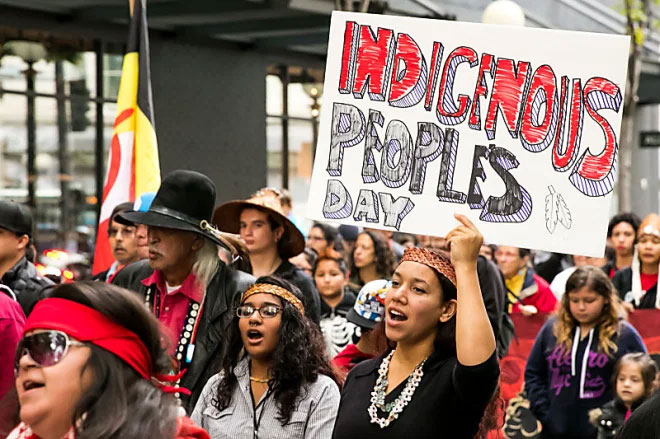
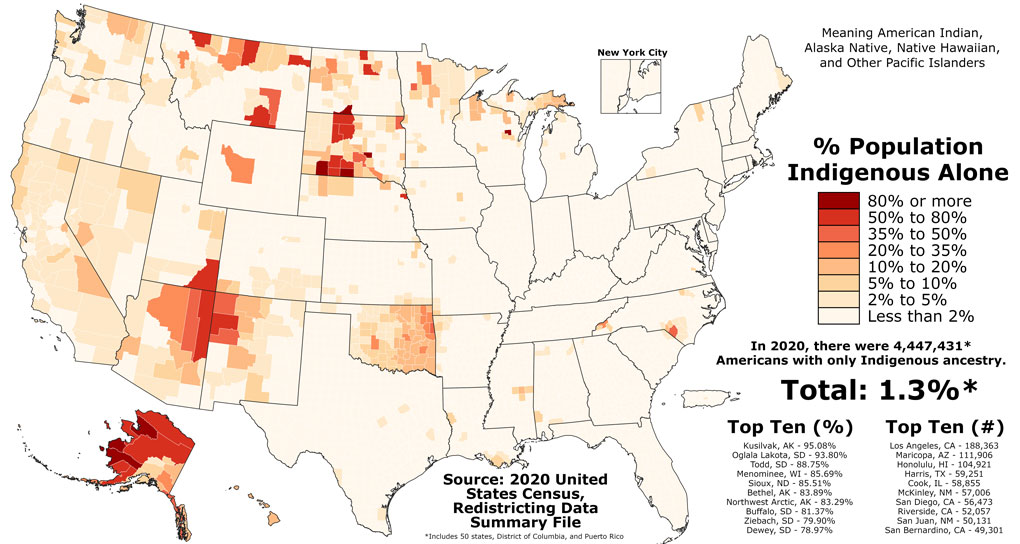
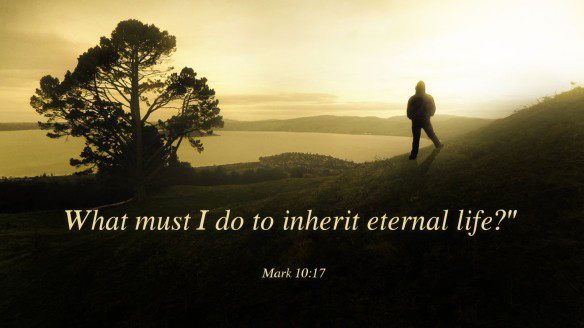
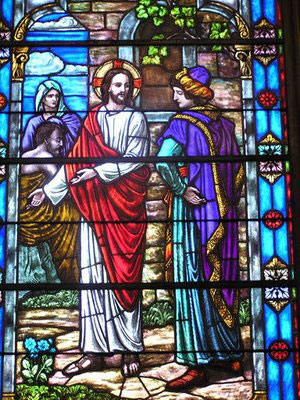

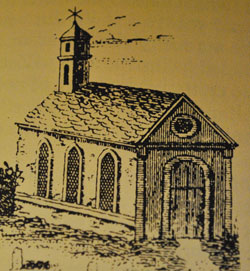
 Twenty First Sunday after Pentecost, Oct. 13
Twenty First Sunday after Pentecost, Oct. 13
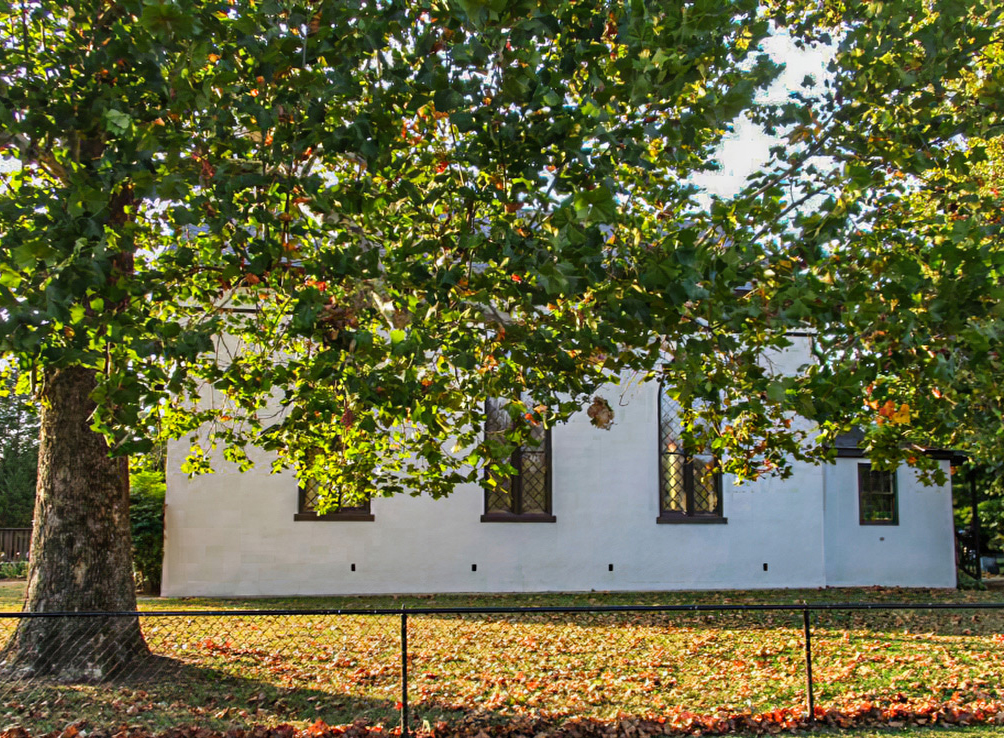 First week, Oct., 2019
First week, Oct., 2019
